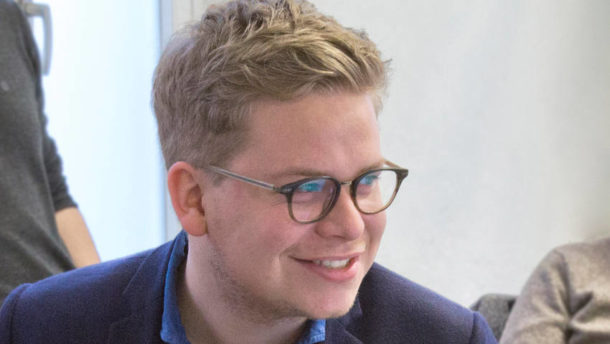What part of this ecosystem is working better than expected?
Our hub concentrates on two locations - the Medical Valley in Erlangen and the Zollhof-Tech Incubator in Nuremberg. At both locations we have two really exciting organisations: Medical Valley is the largest healthcare cluster in Germany and Zollhof is one of the fastest growing tech incubators in Germany. What’s nice about this is that we get to implement many joint projects at the intersection of digital health and trends in the startup sector. We regularly organise know-how events because you need a lot of insider knowledge in the health industry: how do I proceed, how do I transfer my product to the first or second healthcare market, which business model do I have to choose, and how much lead time into the market does that mean? Or which topics are difficult in terms of user acceptance, even if they’re technologically exciting? We also put startups in contact with investors, business angels, and professional VCs. We have a large network in this area and we’ve brokered many millions in venture capital through our projects over the last few years.
And what’s going worse than expected?
A lot is happening here and the individual institutions Medical Valley and Zollhof are clearly visible, but the awareness of the hub in Germany could still be higher. That’s why we want to actively pick up on and tell more startup stories and innovation projects that are taking place here in Germany every day. We receive a lot of inquiries from founders all over Germany and from international startups, but there are, of course, always silos in the regions, and we’re trying to break that up. This means that one of our tasks is to attract even more international startups.
Why was this particular location chosen for the Hub?
One reason was that there is a strong university and a university clinic here that are very active in this sector. But there are also strong corporates here, for example Siemens Healthineers or Novartis. And then, of course, the location has grown over time. The Zollhof, in which the BDI President Dieter Kempf has also invested, is one of Germany’s up-and-coming startup hotspots. The Medical Valley in Erlangen has been a pioneer in the region for many years; many hospitals and nursing homes are connected here, making it the largest healthcare cluster in Germany. The region has long stood for digital health and the hub has made it even more visible.
And what region do you look at enviously?
Israel is definitely a location that we shouldn’t just envy - we should also learn from the region. The focus on internationalisation is instilled in startups much earlier in Israel. This is also because startups there are already technologically more advanced and many things can simply be transferred to other areas of application. In our view, international competitors in the field of digital health are regions such as the Greater Boston area, Silicon Valley, and Singapore. We’ve established an intensive exchange with the Greater Boston area for years. This shows that our ecosystem doesn’t have a competence gap in comparison with these locations; rather, the ability to work together transdisciplinarily is the decisive factor. This is precisely where the Digital Health Hub comes in with its programmes.
What new law could help the MediTech industry?
The "new" Medical Device Regulation (MDR) comes into force in 2020. The regulation will make the path of digital health applications from the idea to the market, i.e. to CE certification, more complex, lengthy, and expensive. That’s why many experts believe the most sensible solution is to drop the MDR completely. Of course, this is unrealistic and won’t happen. That’s why we should come up with solutions such as setting up competence centres for medical device regulation with digital platforms and registers for certification-relevant data. Even the early transition to standard care is still very complex. Improvements for the benefit of the patient would also make sense here; for example, the establishment of test tracks for digital medicine, in order to enable easier and faster certification of the medical and economic benefits of digital health innovations.
What will be the next big thing in this sector?
Everything connected to the idea of patient empowerment, i.e. everything that enables the patient to analyse themselves and take their health into their own hands. Many topics are emerging; from hardware and wearables like intelligent shoes to software that uses artificial intelligence to support patient care, make better predictions, and reduce human error.
This interview first appeared in our column on WiWo Gründer.



